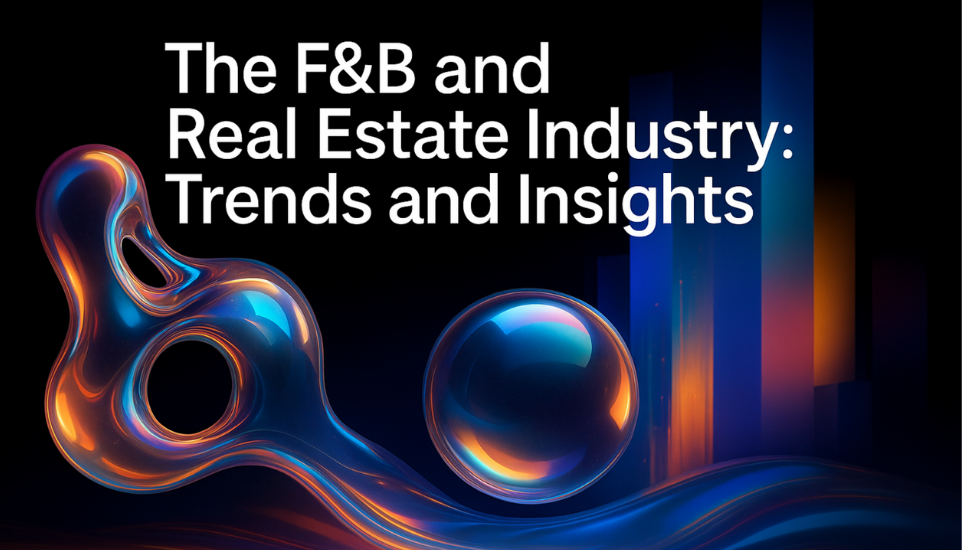Uncategorized
What is Artificial Intelligence Branding? Understanding Its Impact on Marketing
Overview
Artificial Intelligence branding signifies the strategic integration of AI technologies into marketing efforts, aimed at enhancing consumer engagement and personalizing brand experiences. This impact is exemplified by successful companies such as Coca-Cola and Nike, which demonstrate how AI-driven insights and automation not only improve marketing efficiency but also foster deeper connections with consumers. Consequently, this reshapes contemporary promotional strategies, offering Brand Managers actionable insights to navigate the evolving landscape of marketing.
Introduction
In an era marked by the rapid evolution of technology and consumer preferences, brands are increasingly leveraging artificial intelligence (AI) to redefine their marketing strategies. AI branding transcends mere trendiness; it signifies a profound transformation in how companies engage with their audiences, utilizing data analytics and machine learning to craft personalized experiences that resonate on a deeper level.
As businesses navigate this dynamic landscape, the integration of AI presents both immense opportunities and considerable challenges, ranging from enhancing operational efficiency to addressing ethical concerns surrounding data privacy.
By examining successful case studies and emerging trends, it becomes evident that the future of branding is intricately intertwined with AI. Consequently, it is essential for organizations to adapt and innovate to thrive in an increasingly competitive marketplace.
Defining Artificial Intelligence Branding: An Overview
Artificial Intelligence (AI) marketing strategically incorporates AI technologies into promotional efforts, enhancing branding, engagement, and customer experience. This innovative approach employs data analysis, machine learning, and automation to create personalized promotional messages, enhance interactions, and simplify management processes. By harnessing AI, brands can effectively analyze consumer behavior, predict emerging trends, and adapt their strategies to align with the evolving preferences of their target audience.
As we approach 2025, the landscape of AI marketing is rapidly evolving. A significant 30% of business owners anticipate that AI will generate website copy for their companies. This statistic underscores the growing reliance on AI to enhance marketing efficiency and effectiveness. Furthermore, the AI market is projected to generate more startups and jobs than it removes, indicating a robust future for AI integration in marketing despite concerns regarding job displacement.
In the United States, large organizations, particularly those with over 5,000 employees, exhibit the highest rates of AI adoption. However, sectors such as manufacturing and retail show lower adoption levels, highlighting a mixed landscape of AI utilization across industries. Effective AI marketing approaches are becoming increasingly apparent, with companies leveraging AI to develop customized experiences that resonate with consumers.
Expert opinions emphasize the critical role of AI in marketing. A significant survey indicates that 87% of international organizations believe AI technologies will provide them with a competitive advantage. As Josh Howarth observed, this sentiment reflects a broader acknowledgment of AI branding’s capacity to reshape corporate identity and enhance customer experiences, establishing it as a crucial element of contemporary promotional strategies. To optimize AI promotional strategies, companies should focus on establishing benchmarks, assessing progress, and collecting employee feedback for ongoing enhancement.
As companies continue to explore AI integration, the impact on identity and customer engagement is expected to deepen, paving the way for more innovative and responsive marketing practices. At WonderEight, we specialize in innovative identity development and digital marketing solutions that leverage AI technologies to enhance market image and presence. Our approach encompasses customized plans that integrate AI-driven insights, ensuring our clients remain at the forefront of marketing trends and effectively connect with their target audiences.
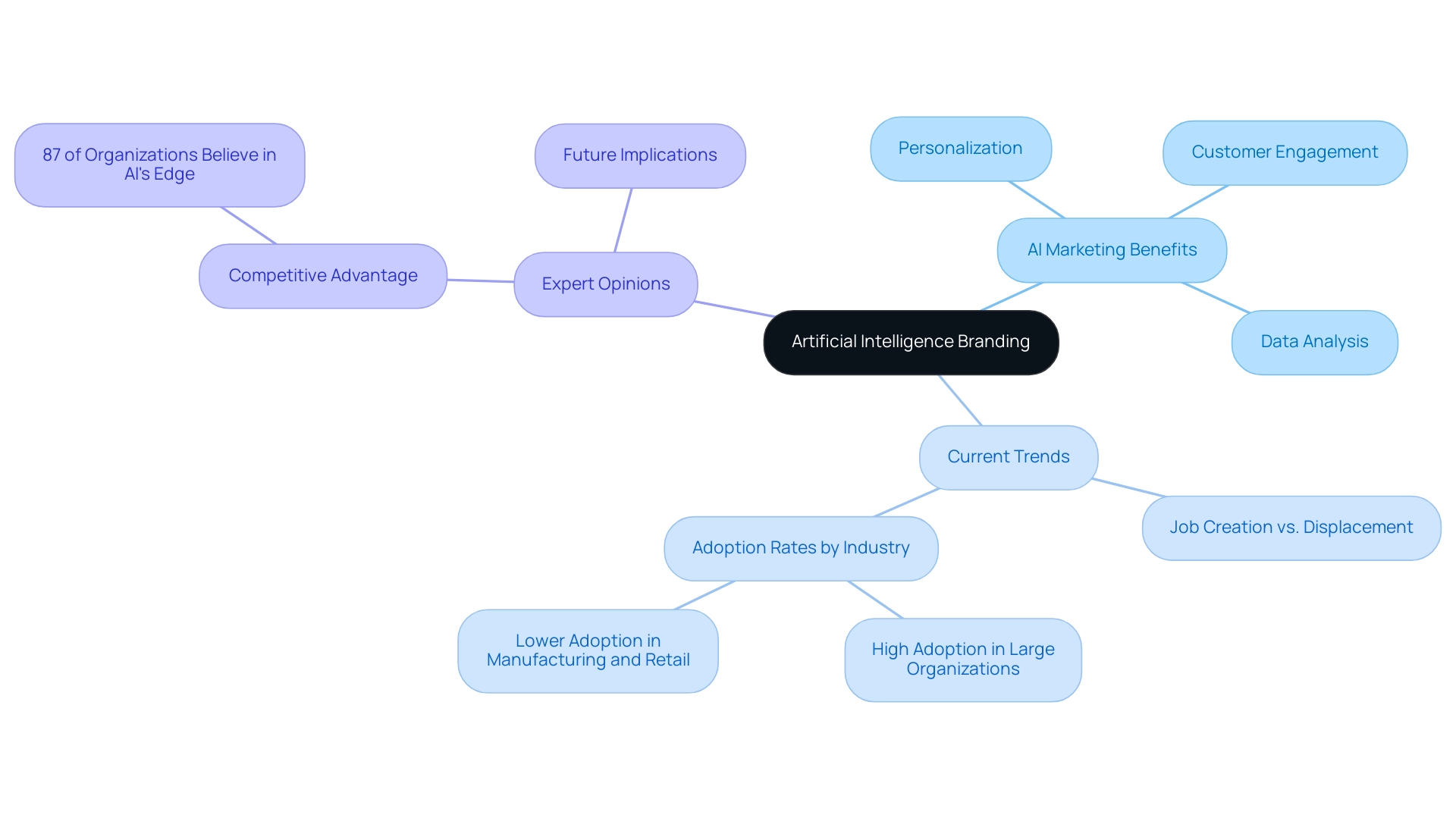
The Integration of AI in Branding Strategies
Incorporating artificial intelligence branding into marketing strategies is fundamentally transforming how companies enhance visibility and engage with consumers. By leveraging AI-driven analytics, businesses can significantly improve their artificial intelligence branding, gaining invaluable insights into consumer preferences and behaviors. This capability enables the creation of highly targeted promotional campaigns. For instance, Coca-Cola has effectively utilized AI to analyze customer data, informing their product development and marketing initiatives, which results in a cohesive narrative that resonates powerfully with their audience.
Moreover, AI technologies such as chatbots are revolutionizing customer interactions by automating responses and personalizing experiences. This innovation not only enhances customer satisfaction but also streamlines communication, allowing brands to maintain a consistent presence across various platforms.
Nike exemplifies successful integration of artificial intelligence branding. The company employs AI to refine its promotional strategies, utilizing data analytics to enhance messaging and boost consumer engagement. This approach has led to innovative campaigns that effectively connect with their target audience, showcasing the substantial impact of artificial intelligence branding on brand loyalty.
Additionally, WonderEight’s customized promotional strategy for Quaker Oats demonstrates the agency’s adept use of AI for significant outcomes. By focusing on innovative design and technology, this approach has enhanced market penetration and consumer interaction, illustrating the capacity of artificial intelligence branding to significantly elevate promotional efforts.
Statistics indicate that the global income from artificial intelligence branding in promotion is anticipated to expand considerably, reflecting the growing reliance on AI tools in promotional strategies. As organizations adapt to these advancements, a recent survey revealed that 21 percent of respondents have fundamentally redesigned workflows to incorporate artificial intelligence branding. This shift underscores a movement towards more efficient and effective promotional practices. According to SurveyMonkey, “Artificial intelligence tools, especially as regulations develop, will form a useful tool that can speed up manual processes, help support creative endeavors like brainstorming, and automate repetitive tasks.”
In summary, the integration of artificial intelligence branding into marketing strategies not only enhances visibility but also fosters deeper connections with consumers. By examining successful case studies from industry leaders like Coca-Cola, Nike, and WonderEight’s collaboration with Quaker Oats, it becomes evident that artificial intelligence branding is a crucial component of contemporary promotional efforts, driving innovation and engagement in an increasingly competitive landscape.
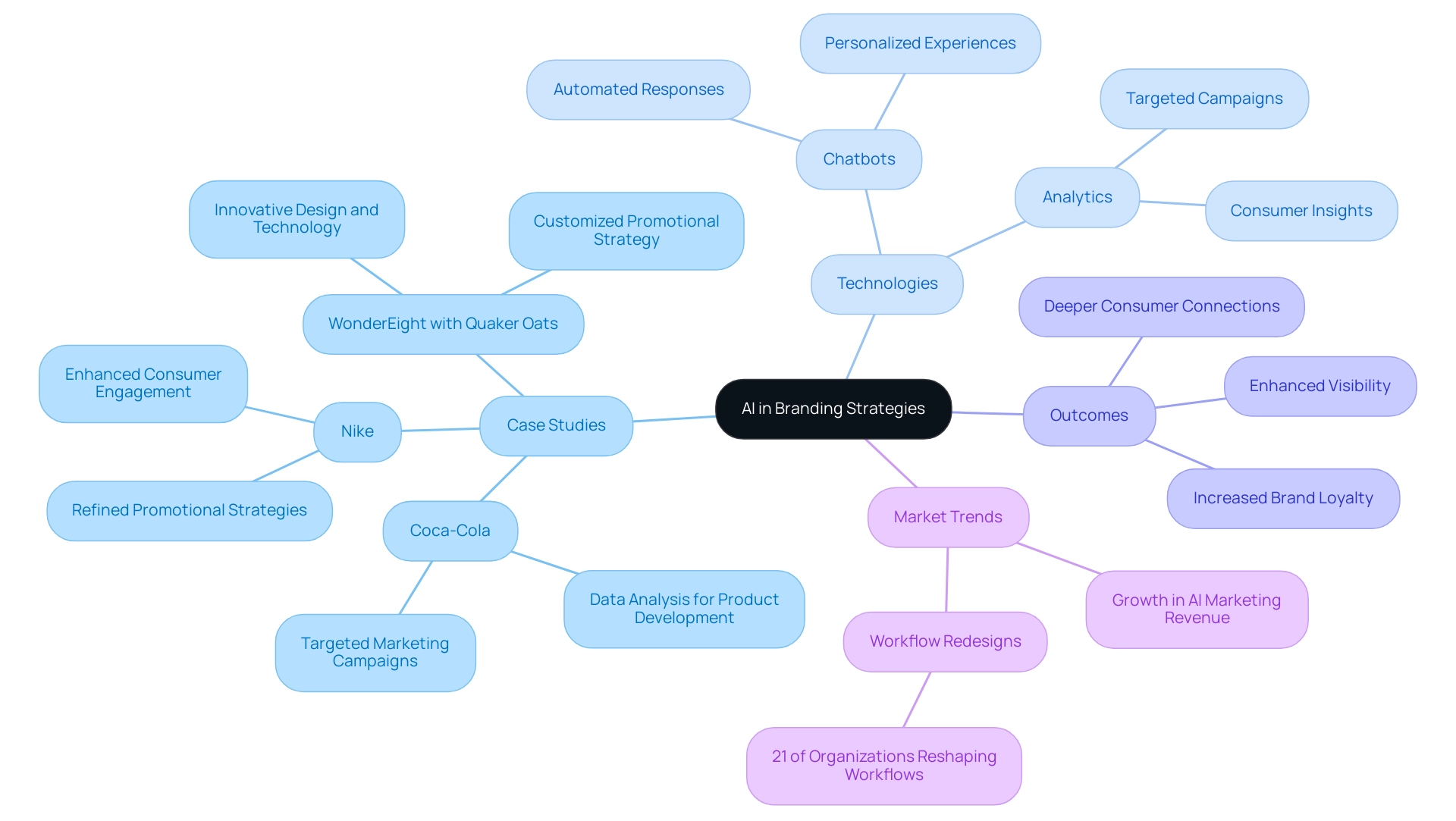
Applications of AI in Marketing: Enhancing Brand Engagement
AI applications in promotion are increasingly diverse and impactful, significantly enhancing engagement through personalized experiences and data-driven insights. Advanced AI algorithms meticulously analyze customer data, empowering companies to craft tailored marketing messages that resonate with individual preferences. A prime example is Sephora, which leverages AI to deliver personalized product recommendations based on user behavior.
This approach not only boosts customer satisfaction but also fosters loyalty, as consumers feel more connected to brands that understand their unique needs.
Furthermore, AI-powered tools are essential for optimizing social media campaigns. By examining engagement metrics in real-time, these tools allow brands to dynamically adjust their strategies, ensuring relevance and connection with their audiences. As noted by SurveyMonkey, “Artificial intelligence tools, especially as regulations develop, will form a useful tool that can speed up manual processes, help support creative endeavors like brainstorming, and automate repetitive tasks.”
This adaptability is vital, especially since approximately 70% of organizations report facing technical challenges with AI software, underscoring the need for continuous enhancement and optimization.
Case studies illustrate the effectiveness of these strategies. For instance, a recent initiative focused on refining AI promotional techniques revealed that regular benchmarks and performance metrics are crucial for effectively adapting AI methods. This ongoing optimization, driven by employee feedback and data analysis, enables businesses to enhance their promotional efforts and boost brand engagement.
The trend of organizations reporting revenue increases and cost reductions from generative AI use further emphasizes the effectiveness of these strategies.
As the marketing landscape evolves, insights from industry leaders highlight the significance of personalized marketing through AI. The integration of these technologies not only streamlines processes but also supports creative endeavors, ultimately resulting in heightened customer loyalty and engagement.
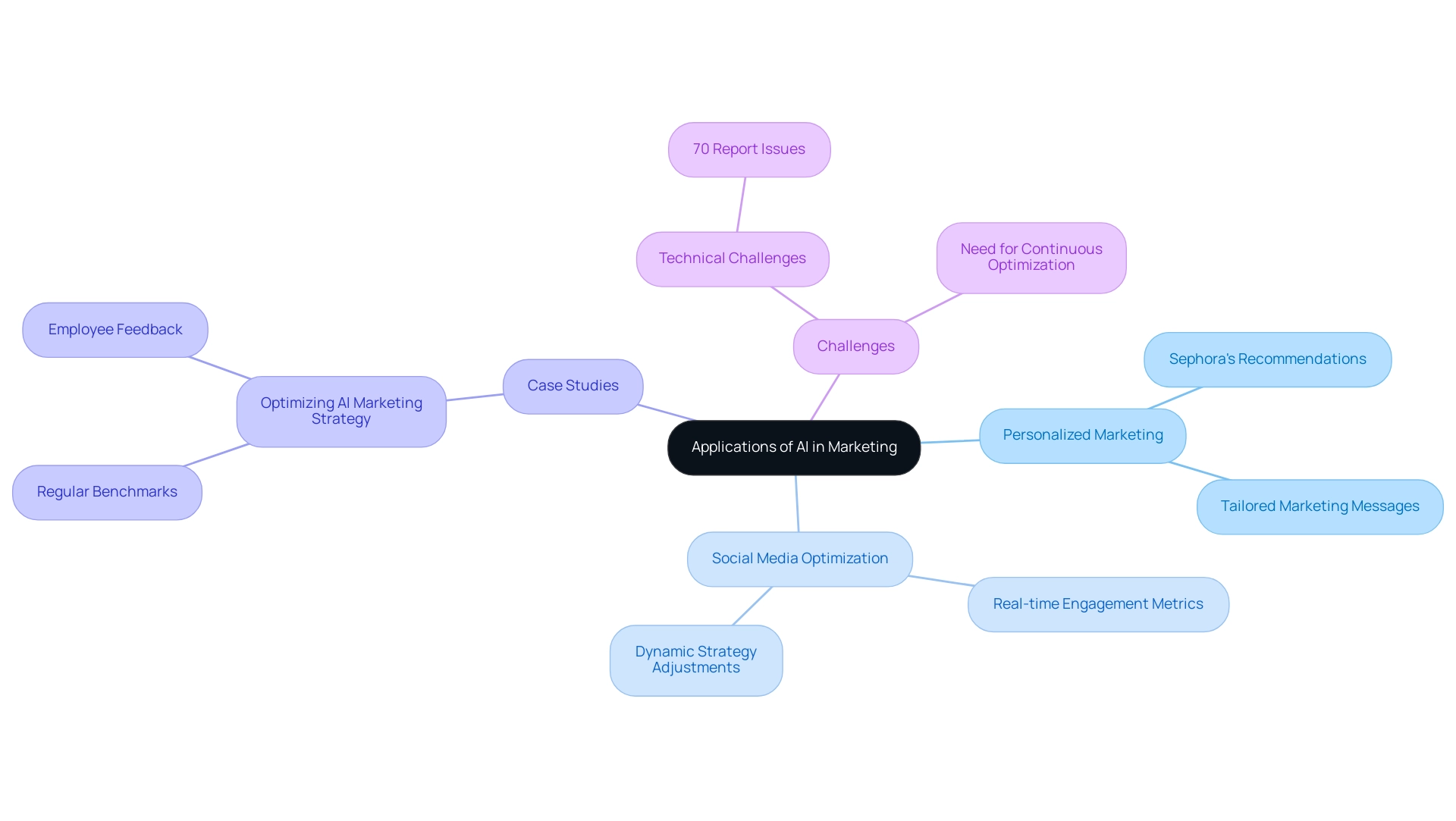
Benefits of AI Branding: Personalization and Efficiency
The advantages of artificial intelligence branding are extensive, particularly in terms of personalization and operational efficiency. By harnessing the power of AI, brands can analyze vast datasets to create highly personalized experiences that align with individual consumer preferences. This tailored approach not only boosts customer satisfaction but also significantly enhances conversion rates; in fact, 73% of marketers acknowledge that AI is crucial in crafting personalized customer experiences.
Moreover, AI optimizes operations by automating repetitive tasks such as data analysis and content creation. This automation allows marketing teams to redirect their focus toward strategic initiatives that drive growth. Leading companies such as Amazon and Netflix exemplify the successful application of AI in enhancing customer engagement and operational efficiency.
For instance, Amazon utilizes AI algorithms to recommend products based on user behavior, resulting in increased sales and customer loyalty. Likewise, Netflix employs AI to assess viewing patterns, allowing them to provide customized content recommendations that maintain user interest.
Furthermore, companies are progressively shifting from general promotions to more focused strategies, employing data to customize discounts according to customer preferences and life cycle phases. This shift not only improves sales but also enhances customer engagement, particularly for discount-sensitive customers or loyalty program members. The integration of artificial intelligence branding enhances personalization and streamlines processes, making promotional efforts more efficient and effective.
As brands continue to explore artificial intelligence branding, the potential for enhanced customer experiences and improved operational outcomes becomes increasingly evident. As noted by Maria Harutyunyan, exploring advanced digital promotional strategies is essential for driving unmatched online growth for businesses globally. Furthermore, case studies on AI applications illustrate its effectiveness in enhancing customer experiences and operational efficiency, showcasing the transformative impact of AI technologies in the marketing landscape.
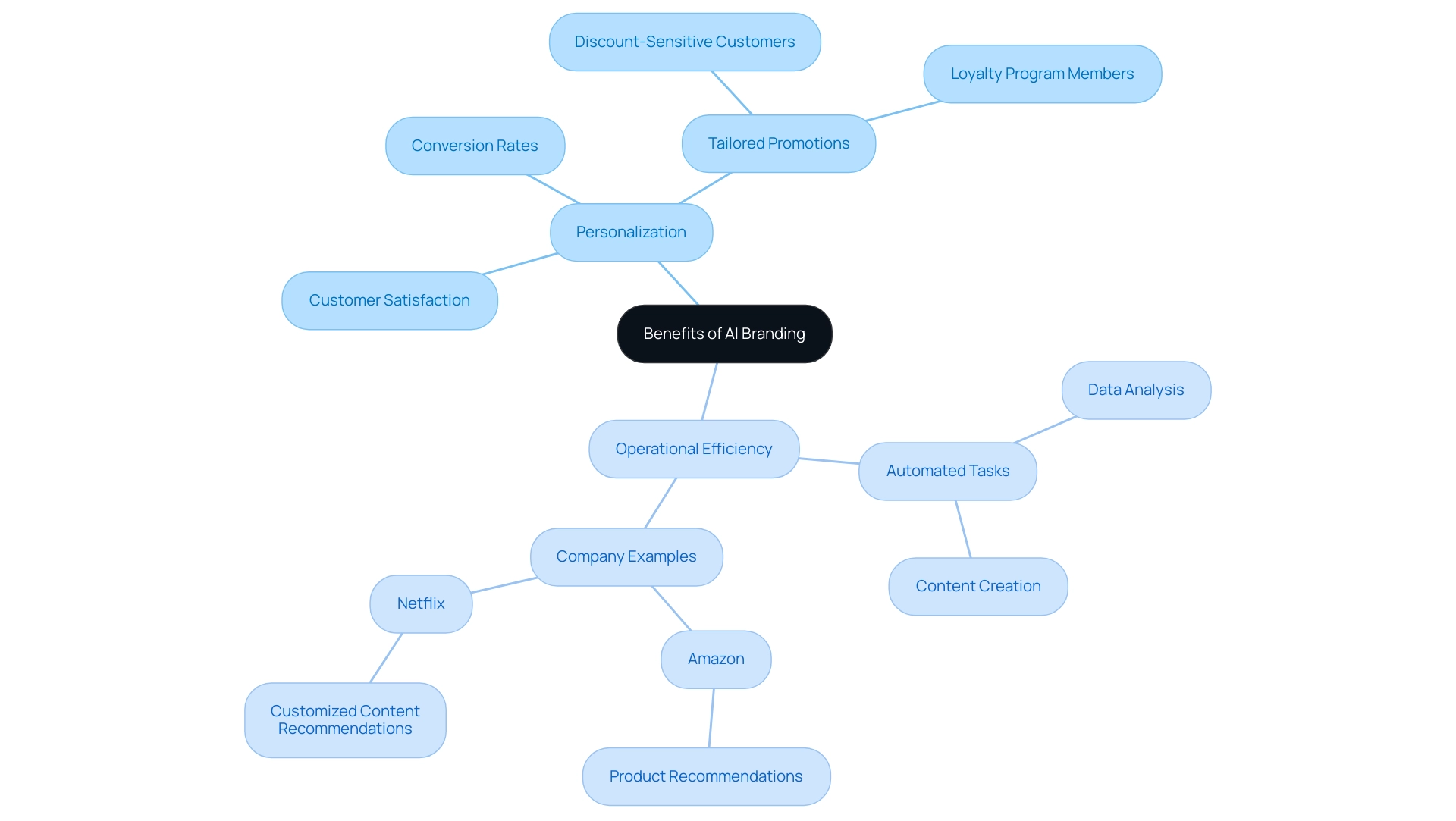
Challenges and Ethical Considerations in AI Branding
Artificial intelligence branding presents a multitude of opportunities, yet it simultaneously introduces significant challenges and ethical considerations that companies must navigate with precision. A primary concern is data privacy, as businesses increasingly rely on extensive consumer data collection and analysis. Adhering to regulations such as the General Data Protection Regulation (GDPR) is essential for maintaining consumer trust and safeguarding reputation.
Consider this: a staggering 67% of Americans are unaware of their country’s privacy and data protection regulations. This statistic underscores the critical need for companies to prioritize transparency in their data practices.
Moreover, ethical issues surrounding algorithmic bias present additional hurdles. If left unaddressed, these biases can lead to the unfair treatment of specific consumer groups, resulting in reputational harm and alienation of potential customers. Companies must proactively implement strategies related to artificial intelligence branding to ensure their AI-driven initiatives are inclusive and equitable, thereby fostering a positive image.
A practical illustration of enhancing customer interactions through AI is the collaboration between AI chatbots and live agents. This integration significantly improves customer service, enabling companies to deliver timely and efficient responses while preserving a human touch in customer interactions.
Recent case studies highlight the importance of embedding privacy as a foundational element in AI development. For instance, initiatives aimed at revolutionizing privacy principles with AI demonstrate how companies can enhance data security through secure training environments. This approach ultimately leads to improved data collection practices and more informed interactions between individuals and organizations. Such case studies illuminate the challenges companies face in artificial intelligence branding, particularly in ensuring compliance with privacy regulations.
As consumer sentiment evolves, with 73% believing that AI can positively impact their customer experience, organizations must remain vigilant in addressing these ethical considerations. By doing so, they can harness the full potential of AI marketing while ensuring that their strategies align with consumer expectations and regulatory requirements. Additionally, the assertion from Data Prot that only 3% of Americans claim to understand how existing online privacy regulations function in America emphasizes the urgency for companies to inform consumers and enhance transparency in their data practices.
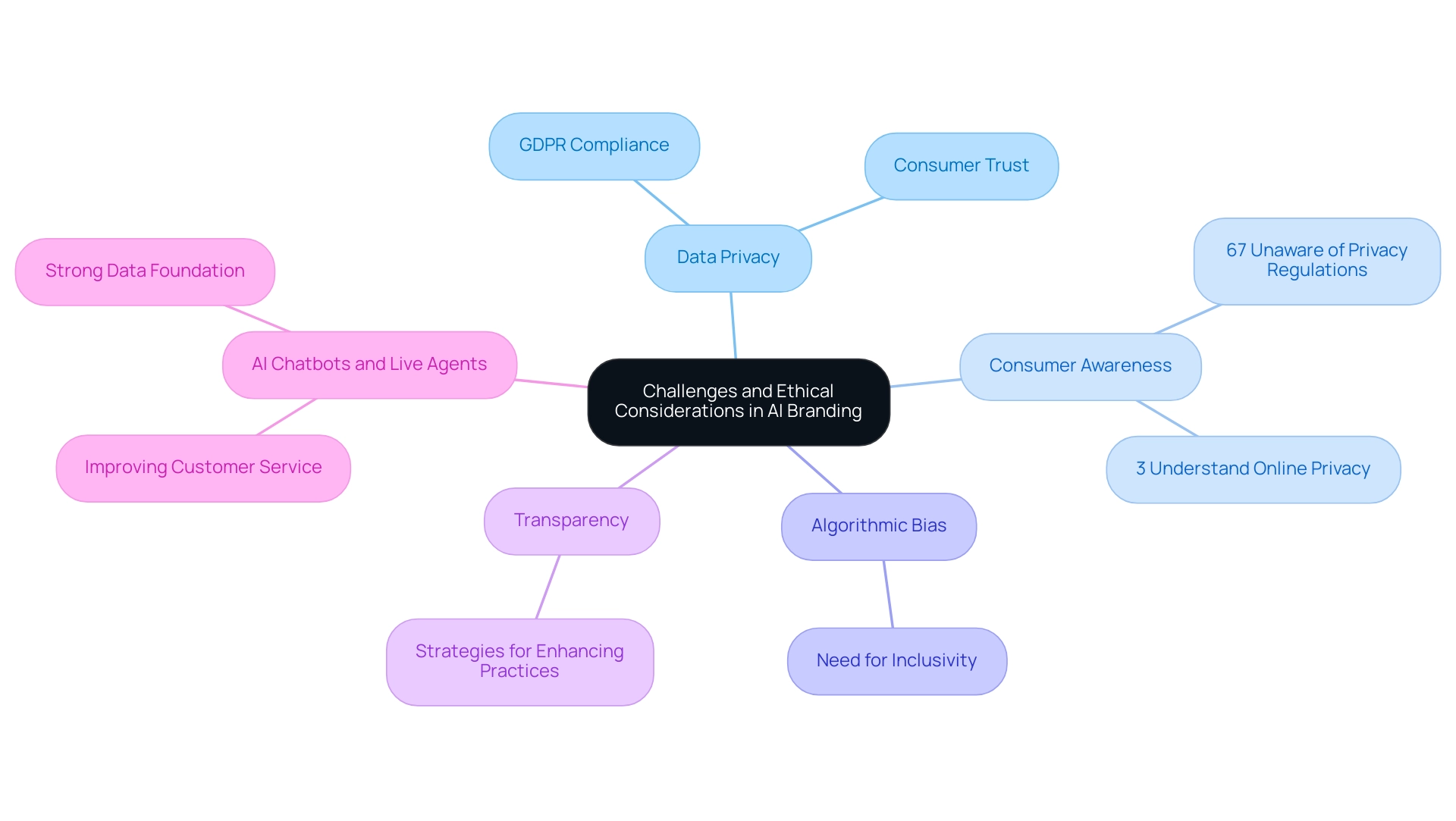
Future Trends in AI Branding: What Lies Ahead
The future of artificial intelligence branding is poised for remarkable transformation, driven by rapid technological advancements and evolving consumer expectations. A key trend is the growing adoption of generative AI in content creation, which enables companies to generate personalized marketing materials at scale. This shift is not merely about efficiency; it reflects a strategic move to enhance customer engagement through tailored experiences.
In fact, 48% of early adopters in the United States and Canada cite improving data-analyst efficiency as their primary motivation for embracing generative AI.
Moreover, the integration of AI with augmented reality (AR) and virtual reality (VR) is anticipated to revolutionize interactions with products. These technologies will enable consumers to interact with products in immersive environments, creating memorable experiences that deepen loyalty. As companies navigate this changing environment, they must adjust their approaches to leverage these innovations effectively, ensuring they stay competitive in an increasingly digital marketplace.
Looking ahead to 2025, emerging trends in artificial intelligence branding will likely include enhanced data analytics capabilities, allowing for more precise targeting and personalization. Industry leaders forecast that as AI technologies advance, artificial intelligence branding will become increasingly essential for brands to enhance their promotional approaches consistently. Case studies show that effective AI promotional approaches necessitate ongoing benchmarks and progress assessment, with regular feedback loops enabling continuous enhancement.
For instance, the case study titled “Optimizing AI Promotional Strategy” highlights the necessity of evolving AI promotional strategies over time, emphasizing the significance of these benchmarks.
However, it is essential to acknowledge the challenges associated with AI marketing. According to Salesforce, 31% of marketers have accuracy and quality concerns about AI, which underscores the need for careful implementation. Despite these challenges, the AI market is projected to create more startups and jobs than it destroys, indicating a promising future for the industry.
Furthermore, product managers can gain from accessible webinars and reports that examine industry trends, offering additional insights into the integration of AI in promotion. This proactive strategy will be essential for companies aiming to thrive in a future where AI-driven insights shape consumer interactions and narratives.
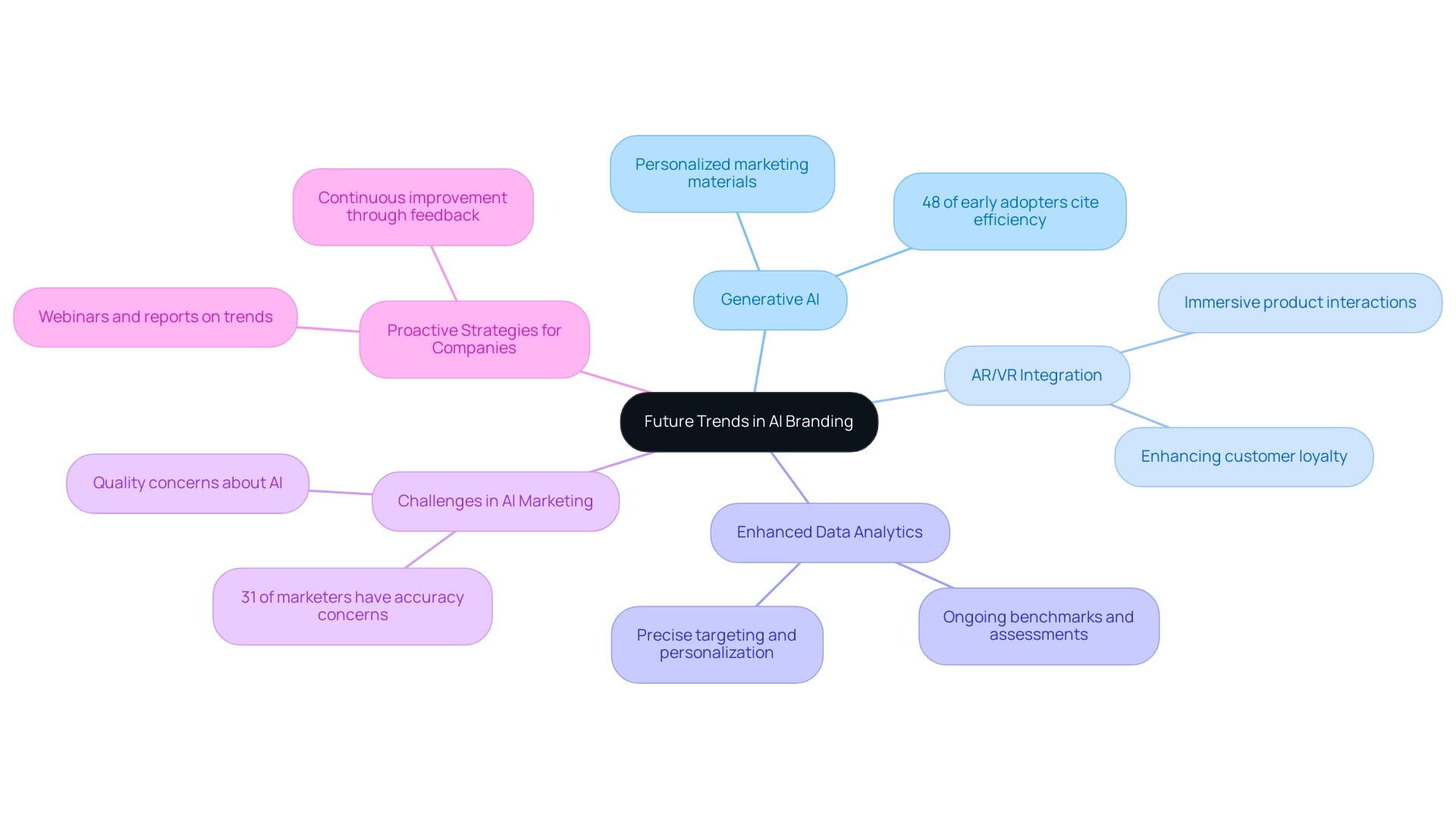
Key Takeaways: The Importance of AI in Branding
AI marketing is revolutionizing the landscape by enhancing personalization, operational efficiency, and consumer engagement. By leveraging AI technologies, companies can craft tailored experiences that resonate deeply with their audiences, ultimately driving loyalty and sales. However, the incorporation of AI into marketing approaches is not without its difficulties.
Concerns regarding data privacy and ethical factors must be addressed to guarantee responsible and transparent AI application. As companies navigate this evolving environment, it is essential to remain aware of emerging trends and best practices. For instance, a significant 56% of marketers, according to Salesforce, report that generative AI content outperforms human-generated content, underscoring the potential of AI to enhance creative output.
Yet, challenges remain, with 31% of marketers expressing concerns about the accuracy and quality of AI-generated content, highlighting the necessity for careful implementation.
Successful AI promotional strategies have already demonstrated measurable outcomes. Companies utilizing generative AI have reported increased revenue and significant cost reductions across various business units. Notable case studies, such as those executed by WonderEight for products like Miranda and Quaker Oats, exemplify the agency’s ability to blend creativity with technology, resulting in impactful experiences that resonate with consumers and illustrate effective AI integration in marketing strategies.
To effectively navigate the challenges of AI marketing, companies should adopt best practices that prioritize transparency, ethical considerations, and consumer trust. Engaging with expert opinions and participating in industry discussions, such as webinars exploring 2025 survey trends and mobile insights, can provide valuable insights into optimizing AI strategies. As the significance of artificial intelligence branding continues to grow, brands must remain agile and informed to thrive in the digital age.
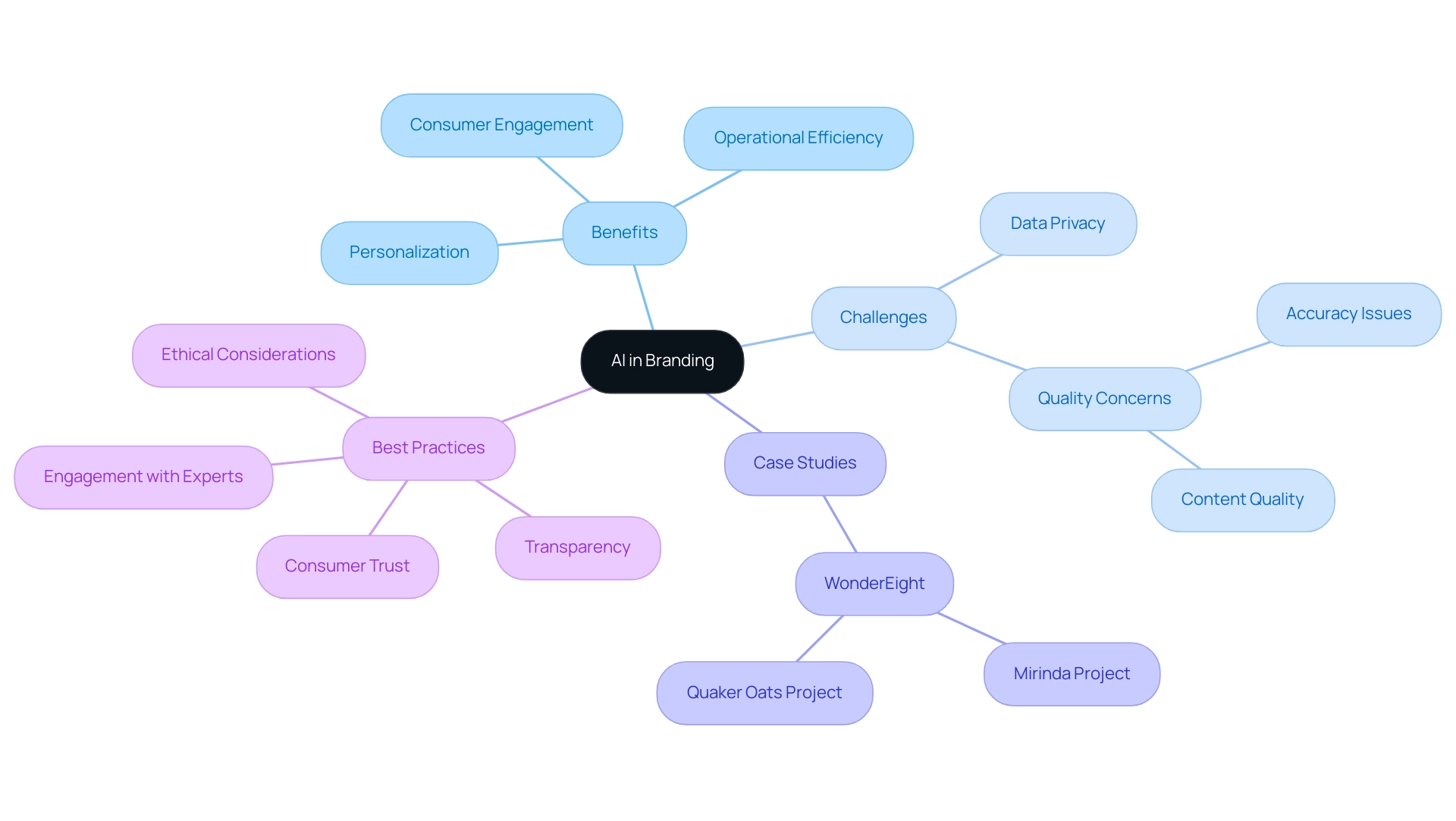
Conclusion
The transformative power of AI in branding is reshaping the marketing landscape, enabling brands to create personalized experiences that resonate deeply with consumers. By harnessing advanced technologies like data analytics and machine learning, brands can not only enhance operational efficiency but also engage their audiences in meaningful ways. Successful case studies, such as those from Coca-Cola and Nike, illustrate how AI-driven strategies lead to innovative campaigns that foster customer loyalty and drive sales.
However, the journey toward effective AI branding is not without its challenges. Issues surrounding data privacy and ethical considerations must be prioritized to build consumer trust. As the landscape evolves, brands must stay informed about emerging trends and best practices, particularly in the realm of generative AI, which has shown promising potential in outperforming traditional content creation methods.
Looking ahead, the integration of AI with technologies such as augmented and virtual reality will further revolutionize brand interactions, creating immersive experiences that deepen customer connections. As brands navigate this dynamic environment, adopting transparent practices and engaging with industry insights will be essential to harnessing the full potential of AI while ensuring responsible usage.
In conclusion, the future of branding lies in the successful integration of AI technologies, which not only enhances consumer engagement but also drives operational success. Brands that embrace this change with a commitment to ethical practices and continuous improvement will undoubtedly thrive in the competitive marketplace of tomorrow.
Frequently Asked Questions
What is AI marketing?
AI marketing strategically incorporates AI technologies into promotional efforts to enhance branding, engagement, and customer experience through data analysis, machine learning, and automation.
How does AI improve marketing strategies?
AI improves marketing strategies by creating personalized promotional messages, enhancing interactions, and simplifying management processes, while allowing brands to analyze consumer behavior and predict emerging trends.
What is the expected impact of AI on businesses by 2025?
By 2025, 30% of business owners anticipate that AI will generate website copy for their companies, indicating a growing reliance on AI for marketing efficiency and effectiveness.
Which organizations are leading in AI adoption?
Large organizations in the United States, particularly those with over 5,000 employees, exhibit the highest rates of AI adoption, while sectors like manufacturing and retail show lower adoption levels.
What are the benefits of AI branding according to experts?
A significant survey indicates that 87% of international organizations believe AI technologies will provide them with a competitive advantage, reshaping corporate identity and enhancing customer experiences.
How can companies optimize their AI promotional strategies?
Companies can optimize their AI promotional strategies by establishing benchmarks, assessing progress, and collecting employee feedback for ongoing enhancement.
What role do AI technologies play in customer interactions?
AI technologies, such as chatbots, revolutionize customer interactions by automating responses and personalizing experiences, enhancing customer satisfaction and streamlining communication.
Can you provide examples of companies successfully using AI in marketing?
Coca-Cola uses AI to analyze customer data for product development and marketing, while Nike employs AI to refine promotional strategies and enhance consumer engagement.
What is the future outlook for AI branding in promotions?
The global income from AI branding in promotion is expected to expand significantly, reflecting the growing reliance on AI tools in promotional strategies, with many organizations redesigning workflows to incorporate AI.
How does WonderEight utilize AI in its marketing strategies?
WonderEight uses AI to develop customized promotional strategies, as demonstrated in their collaboration with Quaker Oats, enhancing market penetration and consumer interaction through innovative design and technology.

